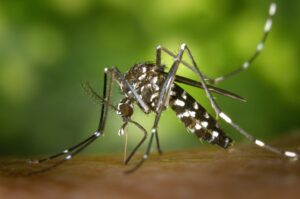Protect Yourself from Mosquito-Borne Diseases: Essential Tips from Ottawa Public Health

Ottawa residents are being urged by Ottawa Public Health (OPH) to take precautions against mosquito bites as the risk of mosquito-borne diseases like Eastern Equine Encephalitis Virus (EEEV) and West Nile Virus (WNV) increases. A horse in Ottawa has recently tested positive for EEEV, and OPH’s West Nile Virus prevention program has already confirmed two human cases of WNV this season. Both of these serious diseases are spread to humans through mosquito bites, making prevention key to safeguarding your health.
Why You Should Be Concerned
EEEV is typically transmitted between wild birds and mosquitoes but can occasionally jump to horses and, though rarely, humans through the bite of an infected mosquito. While human cases are rare in Ontario—only three have been reported historically, with the most recent in 2022—the consequences can be severe. EEEV can lead to serious neurological disease and even death. Although no human cases have been reported in Ottawa, the presence of EEEV in a local horse is a concerning sign.
On the other hand, WNV is a more common concern in Ottawa, particularly in urbanized areas where the mosquitoes that carry the virus are frequently found. This year, OPH has reported a significant uptick in WNV activity, with 14 positive mosquito pools and two human cases already confirmed. WNV can also cause serious health issues, including neurological complications, which is why it’s crucial to take preventive measures.
How to Protect Yourself
The best way to protect yourself from EEEV and WNV is by preventing mosquito bites. Here are some recommendations from Ottawa Public Health:
- Apply Mosquito Repellent: Use a Health Canada-approved mosquito repellent containing DEET or icaridin on exposed skin and clothing. This is one of the most effective ways to deter mosquitoes. Remember to avoid applying DEET to synthetic fabrics to prevent damage.
- Be Vigilant During Peak Mosquito Hours: Mosquitoes are most active between dusk and dawn, as well as near shady hedges, bushy areas, or wooded locations. Protect yourself during these times by staying indoors or taking extra precautions if you must be outside.
- Dress Appropriately: Wear light-coloured, tightly woven, loose-fitting clothing, such as long pants, long-sleeved shirts, shoes, and socks, to minimize exposed skin.
- Maintain Your Home: Ensure that all windows and doors in your home have screens that are in good condition to keep mosquitoes out.
- Eliminate Standing Water: Mosquitoes breed in standing water. Remove or empty water from bird baths, toys, flower-pot saucers, swimming-pool covers, old tires, wheelbarrows, buckets, and cans at least once a week. Keep all openings to rain barrels covered with screen mesh.
How Destinations Travel Clinic Can Help
At Destinations Travel Clinic, we’re committed to helping you protect yourself and your family from mosquito-borne diseases. We carry a range of Health Canada-approved mosquito repellents containing DEET or icaridin, perfect for keeping those pesky insects at bay. Additionally, if you do get bitten, our after-bite products can provide quick relief from itching and irritation.
Visit us at Destinations Travel Clinic or Shop Online to stock up on these essential products and ensure you’re well-prepared for mosquito season. Your health and safety are our top priorities!
For more information on West Nile Virus and Eastern Equine Encephalitis Virus, please visit the Ottawa Public Health West Nile Virus page or consult with our knowledgeable staff at Destinations Travel Clinic
Disclaimer: The medical information on this site is provided as an information resource only and is not to be used or relied on for any diagnostic or treatment purposes. This information does not substitute for professional diagnosis and treatment. Please do not initiate, modify, or discontinue any treatment, medication, or supplement solely based on this information. Always seek the advice of your healthcare provider first. Full Disclaimer.
